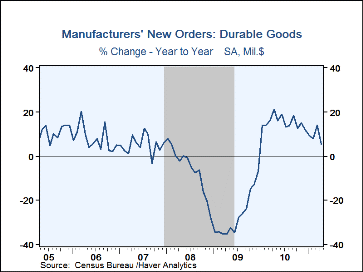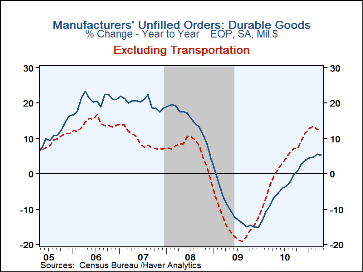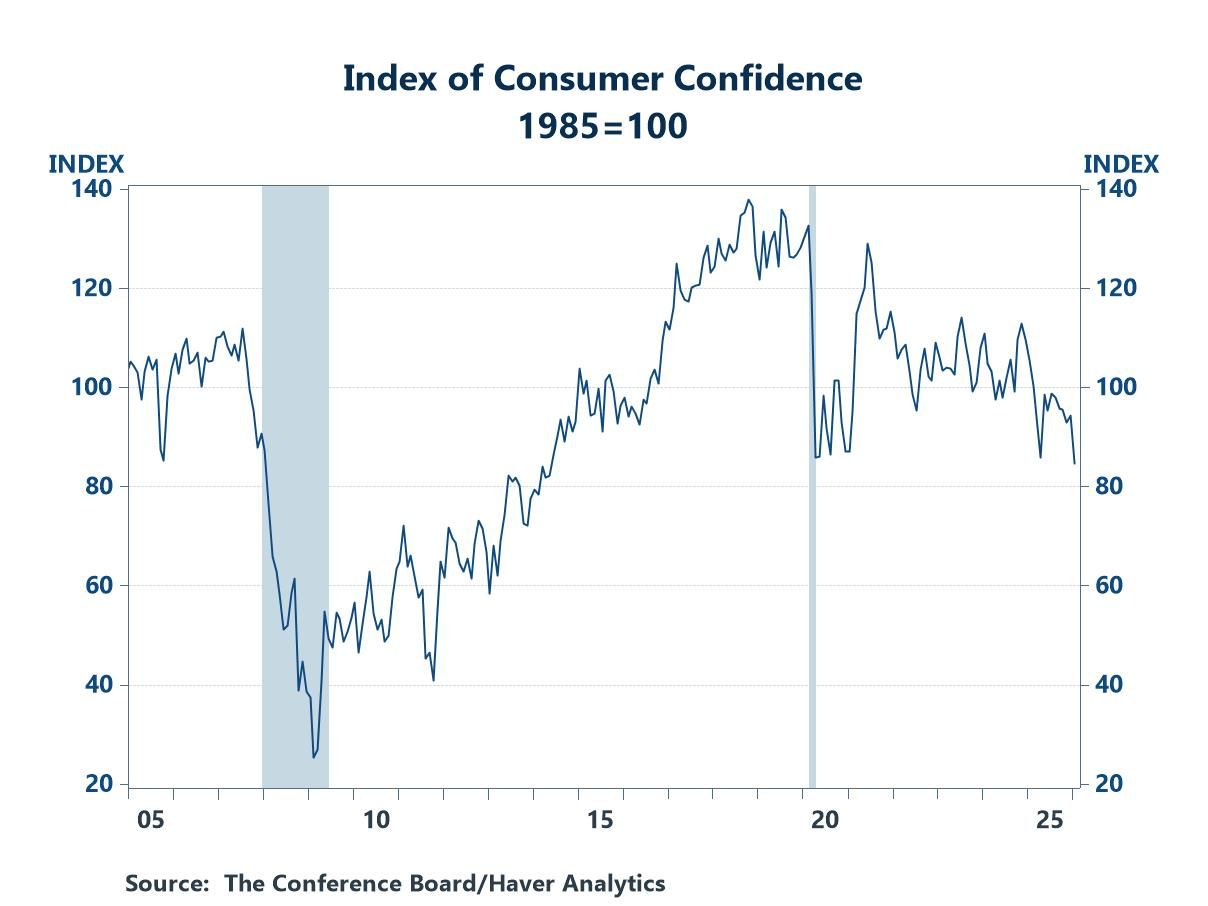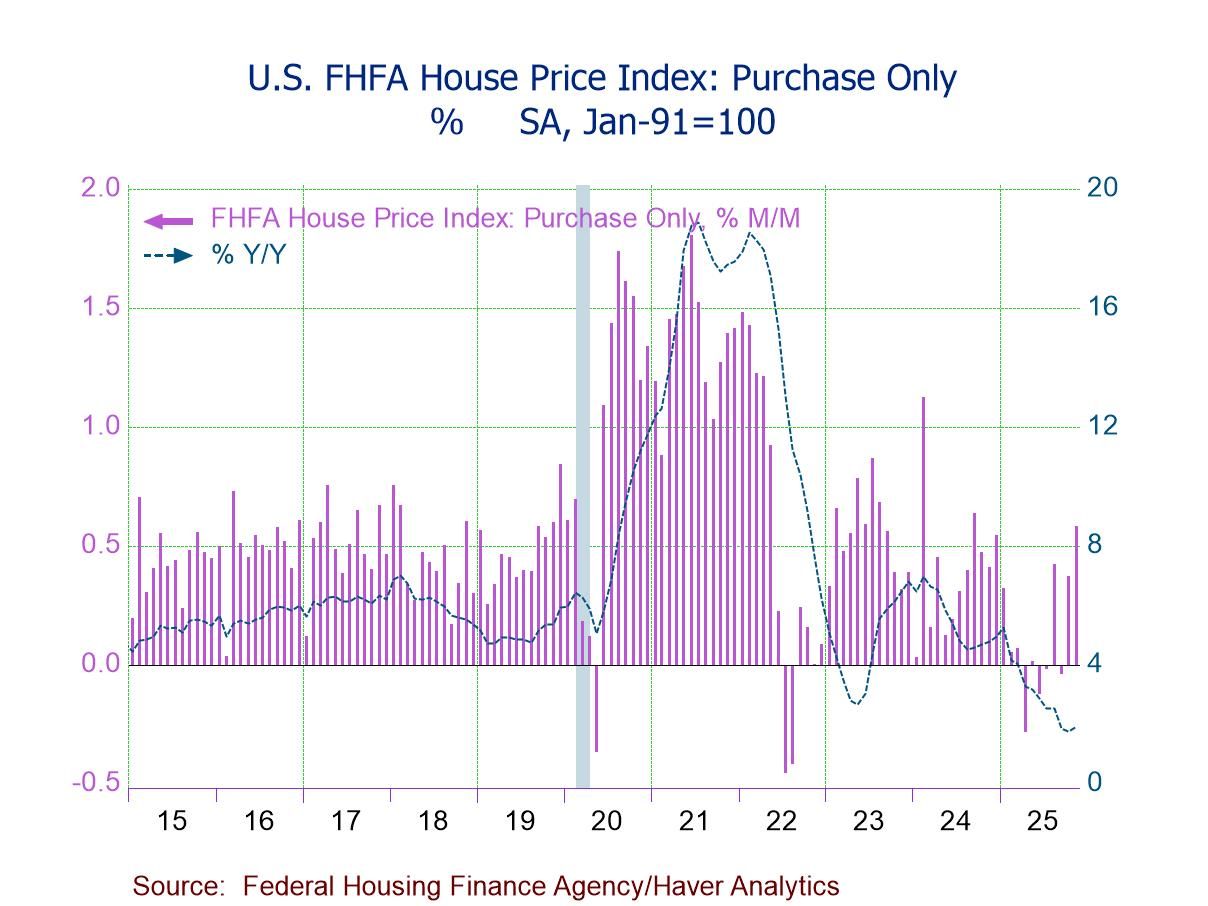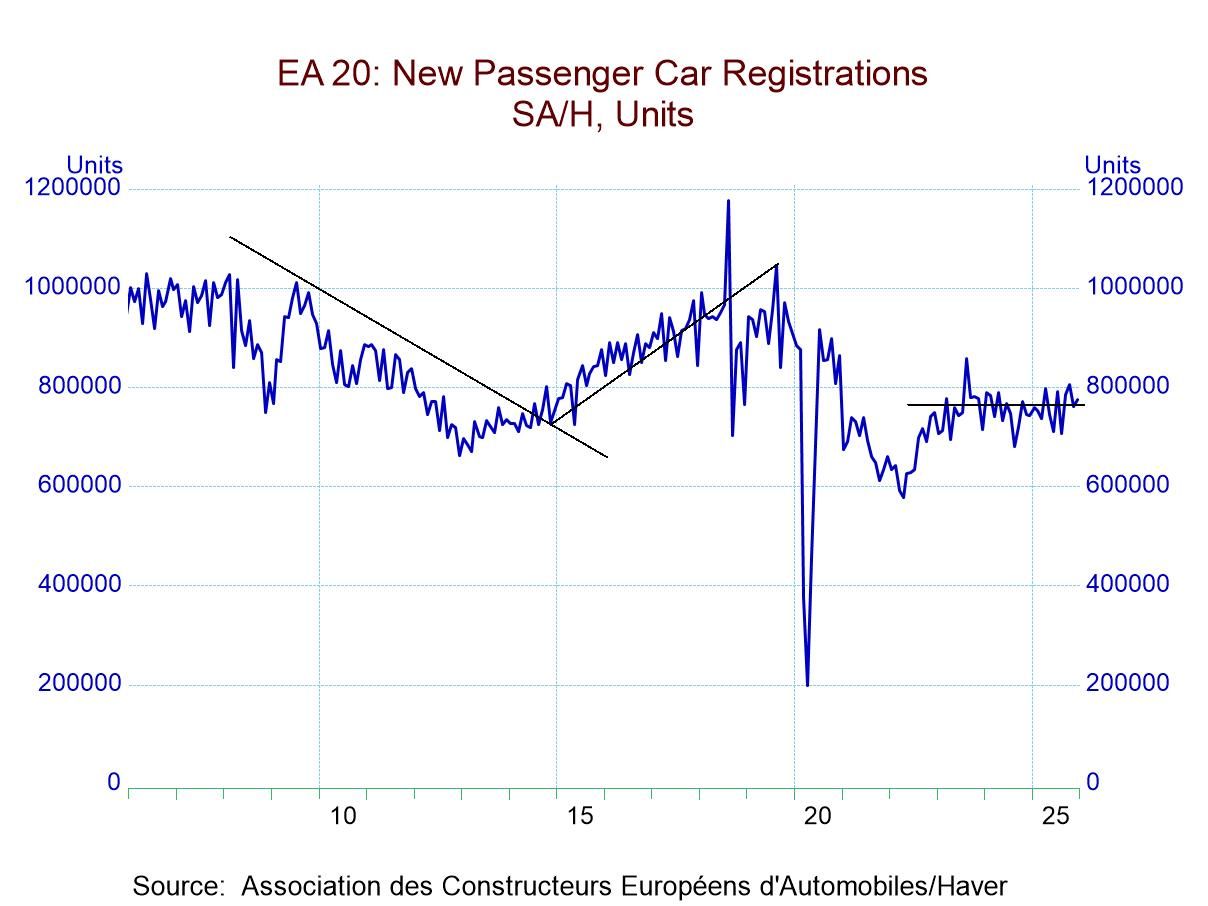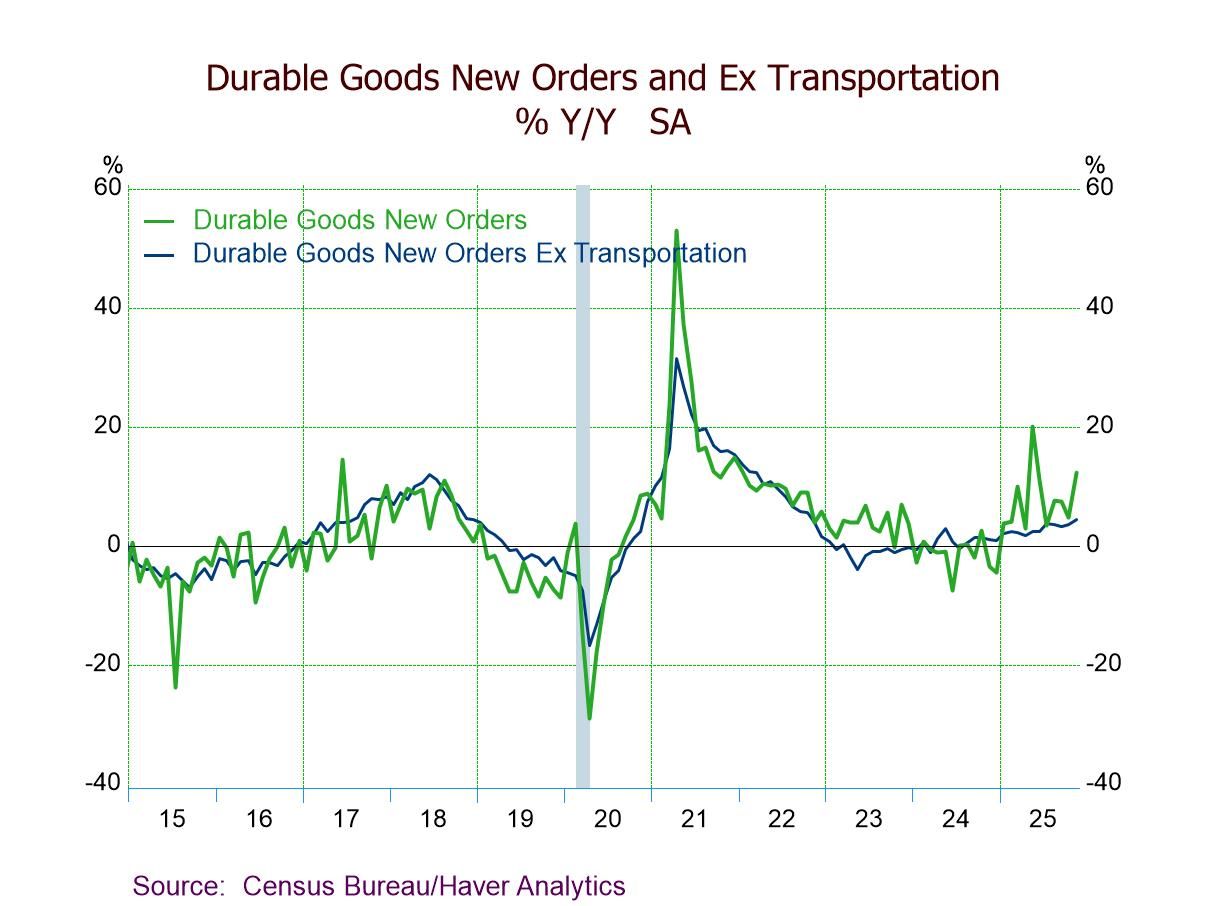 Global| May 25 2011
Global| May 25 2011U.S. Durable Goods Orders Collapse Due To Aircraft & Autos
by:Tom Moeller
|in:Economy in Brief
Summary
The transportation sector caused huge volatility in durable manufacturing last month. New orders for durable goods fell 3.6% and reversed virtually all of the 4.4% March gain. Past figures were revised as part of the benchmark changes [...]
The transportation sector caused huge volatility in durable manufacturing last month. New orders for durable goods fell 3.6% and reversed virtually all of the 4.4% March gain. Past figures were revised as part of the benchmark changes released earlier this month. The latest decline outpaced Consensus expectations for a 2.2% drop. Leading the fall were lower orders in the transportation sector where bookings for aircraft & parts fell 23.6% (-24.5% y/y). In addition, disruption due to the earthquake in Japan helped orders for motor vehicles & parts fall 4.5% (+13.4% y/y) after a 6.6% March increase.
Outside of the transportation sector, orders also declined last month by 1.5% and reversed most of the March increase. Electrical machinery orders dropped 4.9% (+4.0% y/y) and machinery orders fell 3.4% (+16.1% y/y). Orders for computers also have lost great momentum recently but still ticked up 0.7% (-2.3% y/y) in April. In the capital goods sector, volatile orders for commercial aircraft often create huge swings in the total, but recently the overall trend still has weakened considerably. While the level of orders remains high, total nondefense capital goods orders fell 7.3% last month and the y/y gain fell to 4.6%. Excluding aircraft, orders fell 2.6% and the y/y gain weakened to 11.1%.
Shipments of durable goods also declined last month by 1.0% but y/y growth remained firm at 6.7%. The 12-month gain compares to a diminished 8.0% y/y increase in industrial production of durable goods. Shipments of motor vehicles and parts fell 4.3% (+13.4% y/y). Less transportation, shipments slipped 0.4% (+7.1% y/y) after a 2.5% March increase.
As the level of orders remained higher than shipments, unfilled orders continued to rise but by a lessened 0.2% (5.2% y/y). Less the transportation sector, backlogs were up a stronger 12.4% versus last year. The rate of inventory accumulation also decelerated last month to a still-strong 0.9% (12.6% y/y), it was the weakest m/m rise this year.
The durable goods figures are available in Haver's USECON database. The expectation figure is in the AS1REPNA database.
| Durable Goods NAICS Classification (%) | Apr | Mar | Feb | Y/Y | 2010 | 2009 | 2008 |
|---|---|---|---|---|---|---|---|
| Orders | -3.6 | 4.4 | -1.1 | 5.3 | 15.4 | -27.3 | -6.3 |
| Excluding Transportation | -1.5 | 2.5 | -0.6 | 6.7 | 14.1 | -23.2 | -1.5 |
| Nondefense Capital Goods | -7.3 | 5.0 | 4.8 | 4.6 | 28.0 | -31.0 | -8.4 |
| Excluding Aircraft | -2.6 | 5.4 | -0.1 | 11.1 | 17.2 | -20.4 | -1.2 |
| Shipments | -1.0 | 3.1 | 0.0 | 6.7 | 6.2 | -20.4 | -2.8 |
| Excluding Transportation | -0.4 | 2.5 | -0.2 | 7.1 | 8.7 | -21.0 | -0.1 |
| Inventories | 0.9 | 1.7 | 1.2 | 12.6 | 9.9 | -9.0 | -0.2 |
| Excluding Transportation | 0.9 | 1.4 | 1.1 | 11.0 | 7.6 | -12.8 | -0.7 |
| Unfilled Orders | 0.2 | 0.7 | 0.5 | 5.2 | 3.9 | -15.2 | 4.3 |
| Excluding Transportation | 0.4 | 0.6 | 0.8 | 12.4 | 11.6 | -12.5 | -2.1 |
Tom Moeller
AuthorMore in Author Profile »Prior to joining Haver Analytics in 2000, Mr. Moeller worked as the Economist at Chancellor Capital Management from 1985 to 1999. There, he developed comprehensive economic forecasts and interpreted economic data for equity and fixed income portfolio managers. Also at Chancellor, Mr. Moeller worked as an equity analyst and was responsible for researching and rating companies in the economically sensitive automobile and housing industries for investment in Chancellor’s equity portfolio. Prior to joining Chancellor, Mr. Moeller was an Economist at Citibank from 1979 to 1984. He also analyzed pricing behavior in the metals industry for the Council on Wage and Price Stability in Washington, D.C. In 1999, Mr. Moeller received the award for most accurate forecast from the Forecasters' Club of New York. From 1990 to 1992 he was President of the New York Association for Business Economists. Mr. Moeller earned an M.B.A. in Finance from Fordham University, where he graduated in 1987. He holds a Bachelor of Arts in Economics from George Washington University.


